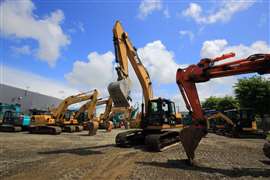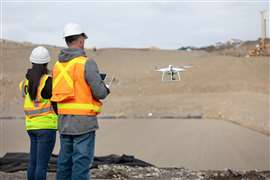Joint effort on digitisation
23 March 2018
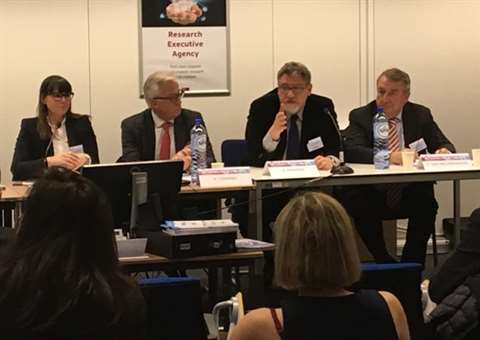
A strategic approach towards digital construction and a need for active political effort were among the demands made at a Digital Strategy workshop in Brussels, Belgium, at which four construction industry organisations came together for the first time to address the topic.
The four associations involved were CECE (the Committee for European Construction Equipment), Construction Products Europe, FIEC (the European Construction Industry Federation) and the EBC (the European Builders Confederation), and the seminar was held as part of European Industry Day. More than 100 people attended, from the entire length of the value chain.
Afterwards, the associations said that the European construction industry had moved closer to its vision of a common European digital construction strategy.
CECE secretary general Riccardo Viaggi admitted that the problem could not be solved in an hour and a half, but that it was an important first step.
CECE president Enrico Prandini said, “As this will be crucial to master the digital transformation of the industry along the value chain, I am really satisfied with the course and the outcome of today’s pilot event.”
Kjetil Tonning, FIEC’s president elect, said, “Having a collaborative and inclusive strategy for the European construction industry will help us to figure out where our industry wants to be.
“We need to work together with existing players in the value chain, public and private, large firms and SMEs, new market entrants, researchers and clients as well as investors.”
With their approach on digitisation, the sectors were said to be contributing to the fine-tuning and concrete implementation of the European Industrial Policy Strategy.
According to Construction Products Europe director general Christophe Sykes, “As digitalisation will transform the whole construction industry, it is important that the main actors come together to discuss the various options and look for synergies.”
Describing the event as successful, he added that it would surely be followed by “many other such exchanges, as the European construction industry strives to lead the world in all these technological developments”.
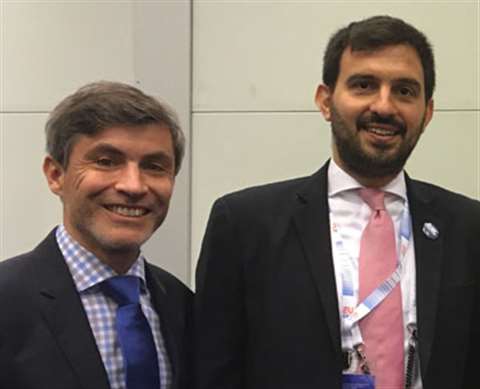
Digital innovation
The digital seminar was opened by Emil Karanikolov, Minister of Economy for Bulgaria, the country currently holding the EU presidency. In his opening speech, he underlined that digital innovation was key for the European construction sector to remain competitive, a global leader and to achieve the EU’s ambitious targets.
He said that it was important to find out how to enhance competitiveness to compete in global markets.
“Construction is a key sector in all these discussions,” he said, adding that there were a series of challenges facing construction. He said the forecasts were positive but there was a need to manage the transition to digital and the circular economy.
“Construction, in particular, is facing fast technological change,” he said. “We need active political effort, and increasing Europe’s competitiveness is crucial.”
He highlighted the digitalisation of ongoing projects, and the issue of non-personal data.
“The free flow of non-personal data is crucial,” he said. “To exploit digitalisation, the market must ensure free circulation of data across the EU.”
He added that maintaining the confidentiality of the data was also important, and that cybersecurity was a key area in construction.
Karanikolov said there were a lot of things that were needed to ensure that the industry adapted and remained competitive.
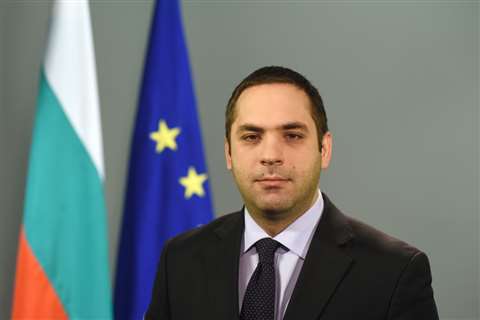
Fulvia Raffaelli, head of unit, DG GROW (Directorate-General for Internal Market, Industry, Entrepreneurship & SMEs), said, “We need a strategic approach towards digital construction.”
It was felt that this underlined that DG GROW supported the vision of the construction value chain working together with the European Commission towards the common goal of developing a digital platform for the construction sector.
Raffaelli said that construction was a key enabler when it came to the issue of climate change, adding, “Construction has the master key to unlock smart and sustainable growth, and jobs.”
This, she said, was right along the value chain, and meant buildings that were efficient over their lifecycle, and improvements in the overall quality of infrastructure.
“It affects everyone – today and tomorrow,” she said.
Embracing digitisation
In their discussion, a panel of experts and representatives of the industries made clear that the construction sector was ready to embrace digitisation, whether it be BIM (Building Information Modelling), IoT (Internet of Things), big data, drones or autonomous driving.
They indicated that, especially in view of climate change commitments, the aim had to be to do more with less.
Philip van Nieuwenhuizen, EBC director, who was on the panel, said, “The event has shown the strong commitment of participants, all key European players of the construction industry, to support the digital transformation of the sector.
“In doing that, we need to make sure that construction SMEs and craftsmen keep up with the definition and in reaping the benefits of digital tools, by facilitating their accessibility and use with the support of the whole construction value chain.”
It was said that one of the major challenges would be to develop and standardise digital networking solutions to enable co-operative, safe and efficient collaboration of all decentralised parties on a construction site.




